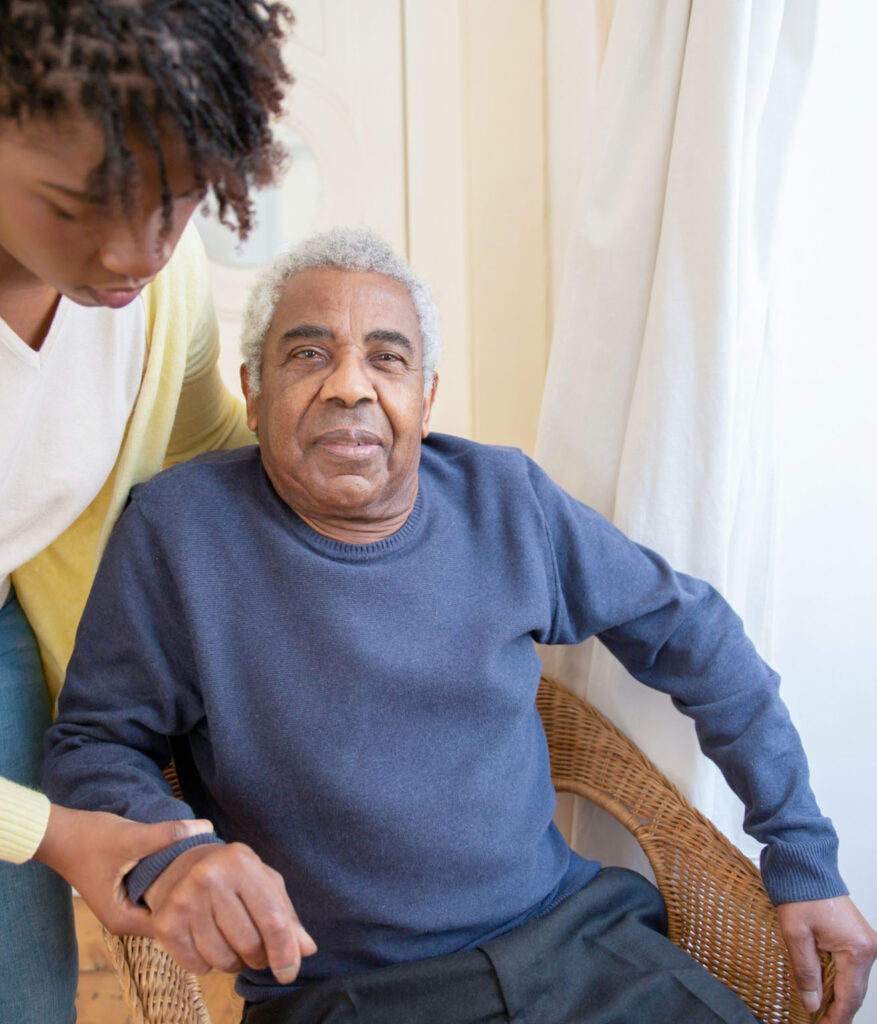
Hospice care is a specialized form of healthcare that prioritizes comfort, dignity, and quality of life for individuals with life-limiting illnesses. Rather than focusing on curative treatments, hospice care helps patients manage symptoms, address emotional and spiritual needs, and spend meaningful time with their loved ones.
At Lifted Hospice, we strive to provide compassionate and personalized care that supports both patients and families through this challenging time.
Hospice care is designed to improve the quality of life for patients facing serious illnesses. Services typically include:
Hospice care can be provided wherever a patient feels most comfortable, including at home, in nursing facilities, or in hospice centers.
Deciding when to begin hospice care can be difficult. Signs that it may be time include:
If you’re unsure, Lifted Hospice is here to guide you through the decision-making process.
For most patients, hospice care is free or covered by Medicare, Medicaid, or private insurance. These programs cover services related to the terminal illness, including medications, equipment, and professional care. Families rarely face out-of-pocket costs, making hospice care accessible to those who need it most.
Starting hospice care early ensures patients and families receive the maximum benefit from services, including physical, emotional, and spiritual support. Early discussions also allow for better planning and help patients maintain control over their care preferences.
Feedback from patients and families overwhelmingly shows that they wished they had started hospice care sooner, as it can ease stress and improve quality of life.
Choosing the right hospice provider is a deeply personal decision. Asking the right questions can help you feel confident in your choice:

Hospice care means that the patient has a life-limiting illness with a prognosis of six months or less, and the focus shifts to comfort and quality of life rather than curative treatments.
Hospice care is for patients nearing the end of life, while palliative care can be provided at any stage of a serious illness, alongside curative treatments.
No, hospice care is about living life to the fullest. It focuses on comfort, spending time with loved ones, and creating meaningful experiences. Hospice empowers patients and families to make the most of their time together.
Hospice care is typically free or covered by Medicare, Medicaid, and most private insurance plans, ensuring families can focus on care rather than financial concerns.
Yes, most hospice care services are delivered in the patient’s home, ensuring comfort in a familiar environment.
Services typically include pain and symptom management, emotional and spiritual support, assistance with daily tasks, and provision of medications and equipment.
Medications related to the patient’s terminal illness are covered as part of the hospice care plan, reducing out-of-pocket costs for families.
Yes, patients can be discharged from hospice care if their health improves or their condition stabilizes. Hospice care can also be resumed later if needed.
A hospice visit may include nursing assessments, aide services, spiritual and emotional support, social services,managing symptoms, updating care plans, providing medications or equipment.
No, hospice care supports patients with a wide range of terminal illnesses, including heart failure, COPD, dementia, and other conditions.
Families receive education, respite care, emotional support, and bereavement counseling to help them navigate caregiving and loss.
Yes, hospice care teams can provide nutritional counseling and adjustments to meet the patient’s needs.
Yes, Lifted Hospice offers around-the-clock support, including on-call nurses for urgent situations and crisis management.
Indicators include frequent hospitalizations, unmanaged pain or symptoms, significant weight loss, or a decline in daily function.
Families are active participants in care, supported by the hospice team. Caregivers receive guidance, respite services, and emotional resources to help them care for their loved one.
Yes, hospice offers spiritual care that aligns with the patient’s beliefs and values, often including chaplain services for those who request it.
Respite care provides temporary relief for family caregivers, allowing them to rest or manage other responsibilities while the patient is cared for in a contracted facility.
Yes, hospice provides bereavement counseling and grief support for families for up to 13 months after a loved one’s passing.
Yes, for most patients, hospice care is covered by Medicare, Medicaid, or private insurance. Families rarely face out-of-pocket costs, making it accessible to those who need it.
Yes, hospice care includes specialized support for patients with dementia, focusing on comfort, dignity, and managing unique symptoms.
Starting hospice care early ensures patients and families receive the maximum benefit from services, including physical, emotional, and spiritual support. Many families express that they wished they had started hospice sooner to ease the journey.
Hospice teams create individualized care plans to manage pain and symptoms effectively, ensuring patients remain comfortable. These plans may include medications, therapies, and other interventions tailored to the patient’s needs. Medications are carefully titrated under the directive of the Hospice Medical Director to ensure safety, optimal relief, and alignment with the patient’s goals of care.
Lifted Hospice combines compassionate, personalized care with local expertise, helping families navigate this journey with dignity, respect, and support. Call us today to learn more about finding the right provider for your family.
“Lifted Hospice gave my father comfort and peace during his final days. Their team’s kindness made all the difference.”
“We were overwhelmed before contacting Lifted Hospice. They guided us every step of the way and made sure my grandmother felt loved.”




8400 Belleview Drive, Suite 155 Plano, TX, 75024
Phone: (972) 777-3000 Fax: (972) 777-3100 Email: care@liftedhospice.com
8400 Belleview Drive, Suite 155 Plano, TX, 75024
Phone: (972) 777-3000
Fax: (972) 777-3100
Email: care@liftedhospice.com